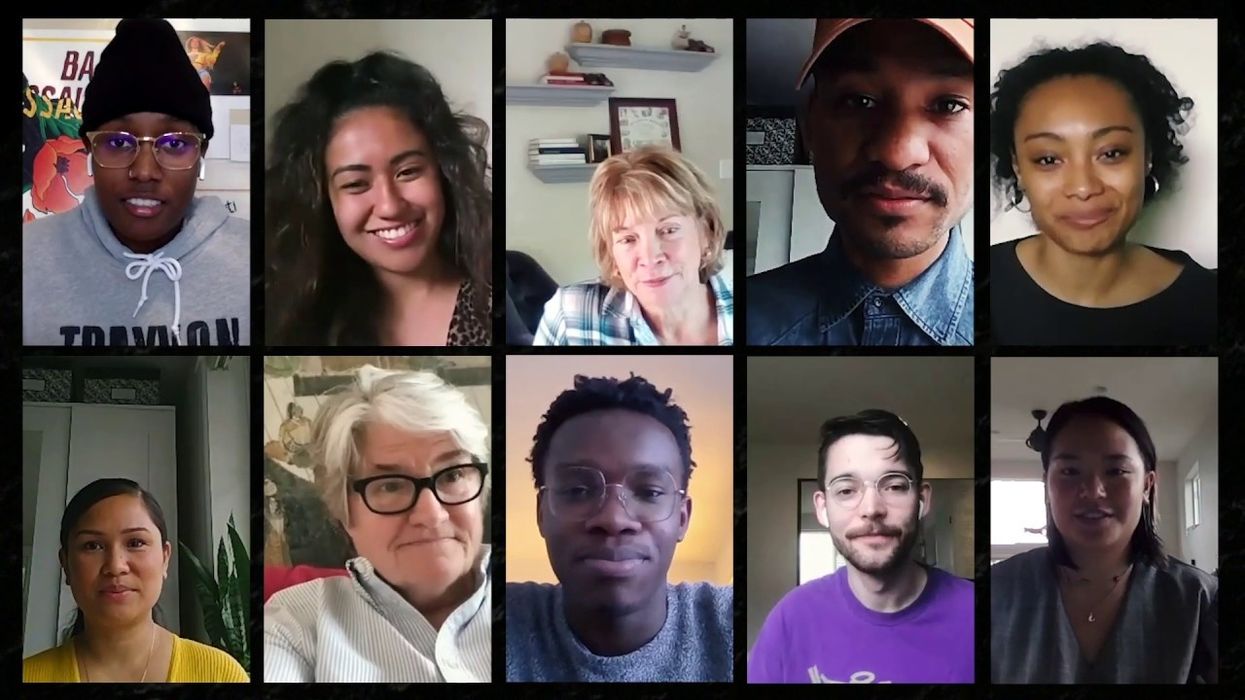Domke and Douglas are co-founders of Common Power, a civic action organization based in Seattle working "to foster, support and amplify a democracy that is just and inclusive."
This November, millions of Americans will choose between their safety and their right to vote. Those hardest hit will be people of color. In a nation founded on the sanctity of self-government, this is unacceptable. With just four months until an unprecedented election, only five states offer universal mail-in voting.
This is not a new problem. It's a new symptom of a larger disease. Since 1776, this country has seen strategic efforts to control who votes — from wealth and gender restrictions, to Jim Crow discrimination, to today's voter ID laws and the targeted removal of polling opportunities.
It's a problem so immense that two years ago we both upended our lives to fight it. Charles left a corporate management role at Starbucks and David took leave from a tenured faculty post at the University of Washington. We brought together a group of Seattleites — mostly people of color — and founded an organization dedicated to the belief that all citizens have the right to vote and should be encouraged to exercise it.
And we have some good news. We all have the power to fight for safe voting right now, even from home. And we have the duty to do so, even if our ballot comes in the mail.
As a first step, Common Power has launched a national campaign to push leaders to make it easier and safer to vote this November. This means expanding early in-person voting and reducing barriers to voting by mail, like required rationales. We have forms, scripts, elected officials' contact information — everything needed to advocate safely.
So far this year, 11 states have reduced barriers to safe voting, with several more on the way. But we must keep pushing — as we just saw in Maryland, the transition to safer voting is simply a matter of political will, and it's up to all of us to continue fighting for everyone's voice in government.
Second, we've created tailored registration and mobilization methods that range from old-school letter-writing to texting voters. For example, in partnership with the Voter Participation Center and Sister District, our volunteers mailed 10,000 hand-written letters encouraging Pennsylvanians to register to vote. Matching this effort with actual registrations will give insight into civic action and engagement in an increasingly remote-only world.
We believe in the power of collective action. Wouldn't be in this fight otherwise. Together with 2,000 Seattle-area volunteers and nationwide partners like BlackPAC and New Virginity Majority, we've registered and mobilized 100,000 potential voters in 20 states through texting, calling, postcards and door-knocking.
Today, clearing the path to a "more perfect" democracy looks a lot like it did 100 years ago — collective, citizen-led activism leading to incremental progress, with the occasional great leap forward in policy.
Now is the moment for a leap.


















 Senate Committee on Commerce, Science, and Transportation ranking member Sen. Maria Cantwell (D-WA) (R) questions witnesses during a hearing in the Russell Senate Office Building on Capitol Hill on February 10, 2026 in Washington, DC. The hearing explored the proposed $3.5 billion acquisition of Tegna Inc. by Nexstar Media Group, which would create the largest regional TV station operator in the United States. (Photo by Chip Somodevilla/Getty Images)
Senate Committee on Commerce, Science, and Transportation ranking member Sen. Maria Cantwell (D-WA) (R) questions witnesses during a hearing in the Russell Senate Office Building on Capitol Hill on February 10, 2026 in Washington, DC. The hearing explored the proposed $3.5 billion acquisition of Tegna Inc. by Nexstar Media Group, which would create the largest regional TV station operator in the United States. (Photo by Chip Somodevilla/Getty Images)
